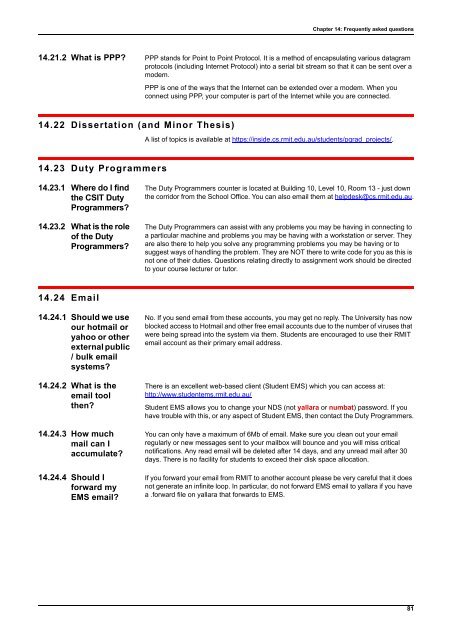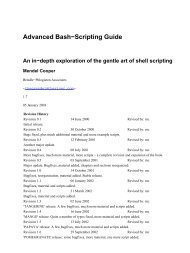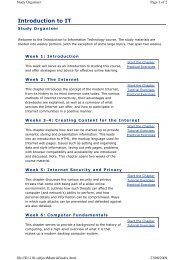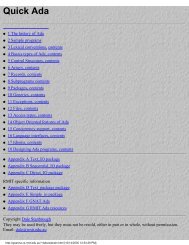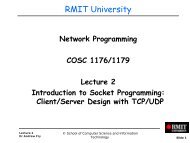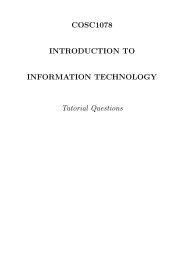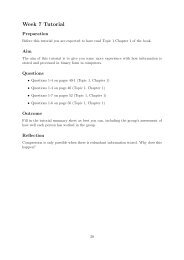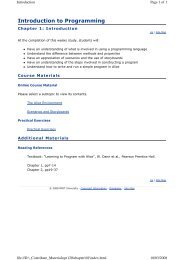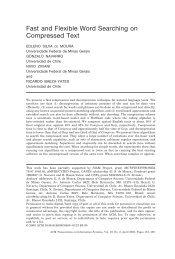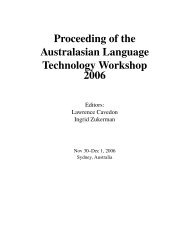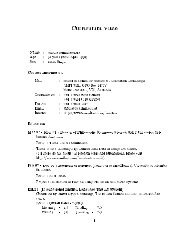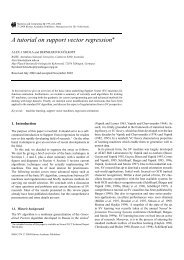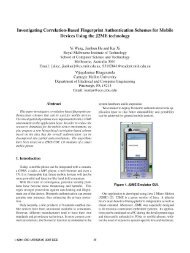The MBC information booklet - RMIT University
The MBC information booklet - RMIT University
The MBC information booklet - RMIT University
Create successful ePaper yourself
Turn your PDF publications into a flip-book with our unique Google optimized e-Paper software.
Chapter 14: Frequently asked questions<br />
14.21.2 What is PPP? PPP stands for Point to Point Protocol. It is a method of encapsulating various datagram<br />
protocols (including Internet Protocol) into a serial bit stream so that it can be sent over a<br />
modem.<br />
14.22 Dissertation (and Minor <strong>The</strong>sis)<br />
14.23 Duty Programmers<br />
14.23.1 Where do I find<br />
the CSIT Duty<br />
Programmers?<br />
14.23.2 What is the role<br />
of the Duty<br />
Programmers?<br />
14.24 Email<br />
14.24.1 Should we use<br />
our hotmail or<br />
yahoo or other<br />
external public<br />
/ bulk email<br />
systems?<br />
14.24.2 What is the<br />
email tool<br />
then?<br />
14.24.3 How much<br />
mail can I<br />
accumulate?<br />
14.24.4 Should I<br />
forward my<br />
EMS email?<br />
PPP is one of the ways that the Internet can be extended over a modem. When you<br />
connect using PPP, your computer is part of the Internet while you are connected.<br />
A list of topics is available at https://inside.cs.rmit.edu.au/students/pgrad_projects/.<br />
<strong>The</strong> Duty Programmers counter is located at Building 10, Level 10, Room 13 - just down<br />
the corridor from the School Office. You can also email them at helpdesk@cs.rmit.edu.au.<br />
<strong>The</strong> Duty Programmers can assist with any problems you may be having in connecting to<br />
a particular machine and problems you may be having with a workstation or server. <strong>The</strong>y<br />
are also there to help you solve any programming problems you may be having or to<br />
suggest ways of handling the problem. <strong>The</strong>y are NOT there to write code for you as this is<br />
not one of their duties. Questions relating directly to assignment work should be directed<br />
to your course lecturer or tutor.<br />
No. If you send email from these accounts, you may get no reply. <strong>The</strong> <strong>University</strong> has now<br />
blocked access to Hotmail and other free email accounts due to the number of viruses that<br />
were being spread into the system via them. Students are encouraged to use their <strong>RMIT</strong><br />
email account as their primary email address.<br />
<strong>The</strong>re is an excellent web-based client (Student EMS) which you can access at:<br />
http://www.studentems.rmit.edu.au/<br />
Student EMS allows you to change your NDS (not yallara or numbat) password. If you<br />
have trouble with this, or any aspect of Student EMS, then contact the Duty Programmers.<br />
You can only have a maximum of 6Mb of email. Make sure you clean out your email<br />
regularly or new messages sent to your mailbox will bounce and you will miss critical<br />
notifications. Any read email will be deleted after 14 days, and any unread mail after 30<br />
days. <strong>The</strong>re is no facility for students to exceed their disk space allocation.<br />
If you forward your email from <strong>RMIT</strong> to another account please be very careful that it does<br />
not generate an infinite loop. In particular, do not forward EMS email to yallara if you have<br />
a .forward file on yallara that forwards to EMS.<br />
81


